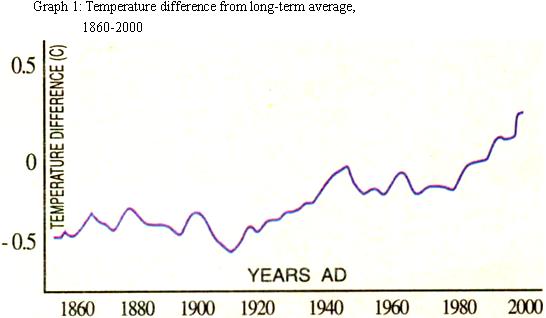-
(单词翻译:双击或拖选)

All scientists subscribe3 to the view that the increase in the earth's temperature is due to the burning of fossil fuels like coal, natural gas and oil to produce energy. Some byproducts of this process are called "greenhouse" gases, the most important one of which is carbon dioxide. Dr Janice Foster explains: "There is a natural phenomenon that scientists call the 'greenhouse effect'. This is when small amounts of gases in the atmosphere, like carbon dioxide, methane4 and water vapour, trap heat from the sun and therefore warm the earth. Without the 'greenhouse effect', the earth would be about thirty-three degrees Celsius5 cooler than it is. So, we need those gases. The problem begins when we add huge quantities of extra carbon dioxide into the atmosphere. It means that more heat energy tends to be trapped in the atmosphere causing the global temperature to go up."

However, the attitude of scientists towards this rise is completely different. On the one hand, Dr Foster thinks that the trend which increases the temperature by 5 degrees would be a catastrophe6. She says, "We can't predict the climate well enough to know what to expect, but it could be very serious." Others who agree with her think there may be a rise of several metres in the sea level, or predict severe storms, floods, droughts, famines, the spread of diseases and the disappearance7 of species. On the other hand, there are those, like George Hambley, who are opposed to this view, believe that we should not worry about high levels of carbon dioxide in the air. They predict that any warming will be mild with few bad environmental consequences. In fact, Hambley states, "More carbon dioxide is actually a positive thing. It will make plants grow quicker; crops will produce more; it will encourage a greater range of animals - all of which will make life for human beings better."
Greenhouse gases continue to build up in the atmosphere. Even if we start reducing the amount of carbon dioxide and other greenhouse gases, the climate is going to keep on warming for decades or centuries. No one knows the effects of global warming. Does that mean we should do nothing? Or, are the risks too great? 收听单词发音
收听单词发音
1
Fahrenheit

|
|
| n./adj.华氏温度;华氏温度计(的) | |
参考例句: |
|
|
|
2
random

|
|
| adj.随机的;任意的;n.偶然的(或随便的)行动 | |
参考例句: |
|
|
|
3
subscribe

|
|
| vi.(to)订阅,订购;同意;vt.捐助,赞助 | |
参考例句: |
|
|
|
4
methane

|
|
| n.甲烷,沼气 | |
参考例句: |
|
|
|
5
Celsius

|
|
| adj.摄氏温度计的,摄氏的 | |
参考例句: |
|
|
|
6
catastrophe

|
|
| n.大灾难,大祸 | |
参考例句: |
|
|
|
7
disappearance

|
|
| n.消失,消散,失踪 | |
参考例句: |
|
|
|

















